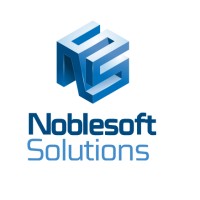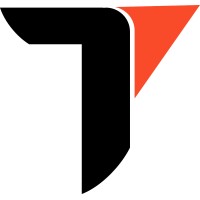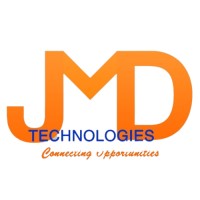

Only W2 - Sr. Oracle ORM Developer (Local to Tampa, FL)
⭐ - Featured Role | Apply direct with Data Freelance Hub
This role is a Sr. Oracle ORM Developer for a 6-month contract, paying "$X/hour", located in Tampa, FL. Key skills include ORM frameworks, Oracle databases, SQL/PL-SQL, and programming (Java/C#). A Bachelor's degree in Computer Science is required.
🌎 - Country
United States
💱 - Currency
$ USD
-
💰 - Day rate
-
🗓️ - Date discovered
August 28, 2025
🕒 - Project duration
Unknown
-
🏝️ - Location type
Unknown
-
📄 - Contract type
W2 Contractor
-
🔒 - Security clearance
Unknown
-
📍 - Location detailed
United States
-
🧠 - Skills detailed
#Schema Design #Database Indexing #Java #Debugging #Database Schema #C# #SQL Queries #Database Architecture #Business Analysis #SQL (Structured Query Language) #Oracle #Documentation #Programming #Data Modeling #Integration Testing #DBA (Database Administrator) #Computer Science #Data Access #Hibernate #Databases #Indexing
Role description
ey Responsibilities:
• Application Development with ORM:
• Design, develop, and maintain applications utilizing an ORM framework (e.g., Hibernate, TopLink, or a custom ORM) to interact with Oracle databases.
• Database Interaction:
• Write efficient and optimized code to perform CRUD (Create, Read, Update, Delete) operations on Oracle databases through the ORM layer.
• ORM Configuration and Tuning:
• Configure and optimize the ORM framework for optimal performance, including mapping entities to database tables, handling relationships, and managing caching strategies.
• SQL and PL/SQL Integration:
• While ORMs abstract SQL, the role may still involve writing and optimizing complex SQL queries and PL/SQL procedures for specific performance-critical operations or when ORM limitations necessitate direct database interaction.
• Data Modeling and Schema Design:
• Collaborate with database administrators and architects to design and implement database schemas that align with the application's data requirements and ORM mappings.
• Performance Tuning:
• Identify and resolve performance bottlenecks within the application's data access layer, including ORM configuration, query optimization, and database indexing.
• Testing and Debugging:
• Conduct unit and integration testing of the application's data access components and troubleshoot issues related to ORM mappings or database interactions.
• Collaboration:
• Work closely with other developers, business analysts, and database administrators to understand requirements, design solutions, and ensure seamless integration.
• Documentation:
• Create and maintain technical documentation for ORM configurations, data models, and application logic related to data access.
Required Skills and Qualifications:
• Proficiency in an ORM Framework:
• Strong experience with a prominent ORM framework (e.g., Hibernate, or specific Oracle ORM tools).
•
• Oracle Database Knowledge:
• Solid understanding of Oracle database architecture, including tables, indexes, views, and stored procedures.
•
• SQL and PL/SQL:
• Proficiency in writing and optimizing SQL queries and PL/SQL code.
•
• Programming Languages:
• Strong programming skills in a language commonly used with ORMs (e.g., Java, C#).
•
• Problem-Solving and Analytical Skills:
• Ability to diagnose and resolve complex issues related to data access and ORM performance.
•
• Communication and Teamwork:
• Excellent communication skills and the ability to collaborate effectively in a team environment.
•
• Education:
• Typically a Bachelor's degree in Computer Science, Information Technology, or a related field.
ey Responsibilities:
• Application Development with ORM:
• Design, develop, and maintain applications utilizing an ORM framework (e.g., Hibernate, TopLink, or a custom ORM) to interact with Oracle databases.
• Database Interaction:
• Write efficient and optimized code to perform CRUD (Create, Read, Update, Delete) operations on Oracle databases through the ORM layer.
• ORM Configuration and Tuning:
• Configure and optimize the ORM framework for optimal performance, including mapping entities to database tables, handling relationships, and managing caching strategies.
• SQL and PL/SQL Integration:
• While ORMs abstract SQL, the role may still involve writing and optimizing complex SQL queries and PL/SQL procedures for specific performance-critical operations or when ORM limitations necessitate direct database interaction.
• Data Modeling and Schema Design:
• Collaborate with database administrators and architects to design and implement database schemas that align with the application's data requirements and ORM mappings.
• Performance Tuning:
• Identify and resolve performance bottlenecks within the application's data access layer, including ORM configuration, query optimization, and database indexing.
• Testing and Debugging:
• Conduct unit and integration testing of the application's data access components and troubleshoot issues related to ORM mappings or database interactions.
• Collaboration:
• Work closely with other developers, business analysts, and database administrators to understand requirements, design solutions, and ensure seamless integration.
• Documentation:
• Create and maintain technical documentation for ORM configurations, data models, and application logic related to data access.
Required Skills and Qualifications:
• Proficiency in an ORM Framework:
• Strong experience with a prominent ORM framework (e.g., Hibernate, or specific Oracle ORM tools).
•
• Oracle Database Knowledge:
• Solid understanding of Oracle database architecture, including tables, indexes, views, and stored procedures.
•
• SQL and PL/SQL:
• Proficiency in writing and optimizing SQL queries and PL/SQL code.
•
• Programming Languages:
• Strong programming skills in a language commonly used with ORMs (e.g., Java, C#).
•
• Problem-Solving and Analytical Skills:
• Ability to diagnose and resolve complex issues related to data access and ORM performance.
•
• Communication and Teamwork:
• Excellent communication skills and the ability to collaborate effectively in a team environment.
•
• Education:
• Typically a Bachelor's degree in Computer Science, Information Technology, or a related field.






